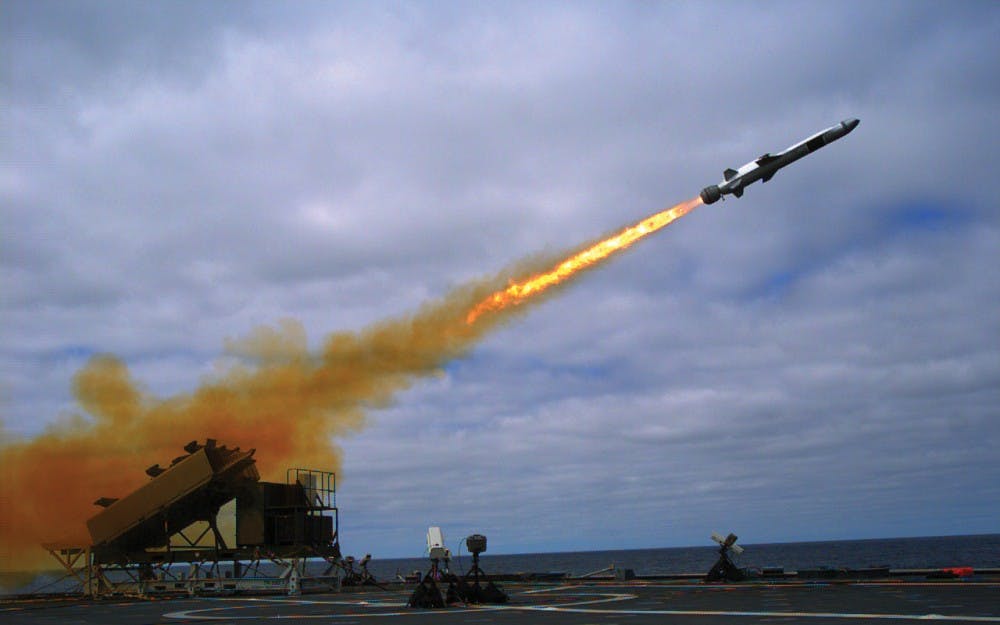
Last Sunday, North Korea said it successfully launched an intermediate range ballistic missile. Though seemingly distant, for some on Penn’s campus the missile test strikes close to home.
“My parents are concerned, but this isn’t new for South Koreans,” College sophomore Mina Yoo, a Seoul resident, said. “We’ve had to deal with North Koreans doing these kinds of tests since the 1980s.”
“It’s something we’re aware of,” Yoo added, “but not something that necessarily affects our everyday life.”
Citing the difficulty of getting South Koreans to care about the North Korean humanitarian issues, Yoo noted a stark generational gap between people like her grandparents — who “have a huge heart for North Korea” and “want unification soon” — and people of her generation, for whom “North Korea is a joke.”
However, the apathy at Penn toward these types of events is on a level Mina calls “surprising.”
“Talking to my friends here at Penn, they’re actually really indifferent,” Yoo said. “They don’t care.”
Yoo is the president of Liberty in North Korea, a student group that helps alleviate the humanitarian crisis in North Korea by raising awareness and providing monetary aid to North Korean refugees. Often abbreviated LiNK, members of the group say they struggle during instances of North Korean military aggression, because the effort to humanize North Koreans is hampered by fear.
“When this kind of news comes out, all the focus shifts to Kim Jong-un and his military tactics, while we want to focus on the actual victims of what’s happening in North Korea, the human rights violations that occur there,” Yoo said. “But we don’t want to be ignorant. We don’t want to just ignore what’s happening.”
Nursing sophomore Grace Cho is the current research chair of LiNK, charged with keeping its constituency updated on shifts in the North Korean situation.
“The [North Koreans] did start using a solid fuel, which means that a missile takes a couple minutes to launch, in comparison with hours using liquid fuel,” Cho explained. “The fact that it was successful, and the fact that we have [American] political turn over — meaning all relationships are at stake — is scary.”
The LiNK board says it will use the military news as a catalyst to change its strategy.
“We have to be flexible,” Cho said. “Missile testing won’t change our core mission, but it’ll really change how we approach things.”
“All I wanted to do was just push away this issue, so that people could focus on the humanitarian issue,” Yoo said. “But I realize this is something we really have to use in order to accomplish our goal.”
Political science professor Avery Goldstein has another perspective on the event.
“It’s very unlikely that North Korea would have an unprovoked launch against one of its neighbors or the United States, because it knows the consequence of doing that,” Goldstein said. “The retaliation they’d face would wipe out the North Korean regime.”
But Goldstein, the director of the Center for the Study of Contemporary China, also said, “My biggest nightmare, out of all of those things in play, is the concern that the regime hasn’t been good at securing its military capabilities in ways that make sure they don’t get passed along to international crime organizations or terrorists.”
“It’s one thing when it’s normal weapons,” he said, “but when it’s some of these capabilities, it’s pretty frightening.”
The Daily Pennsylvanian is an independent, student-run newspaper. Please consider making a donation to support the coverage that shapes the University. Your generosity ensures a future of strong journalism at Penn.
Donate




